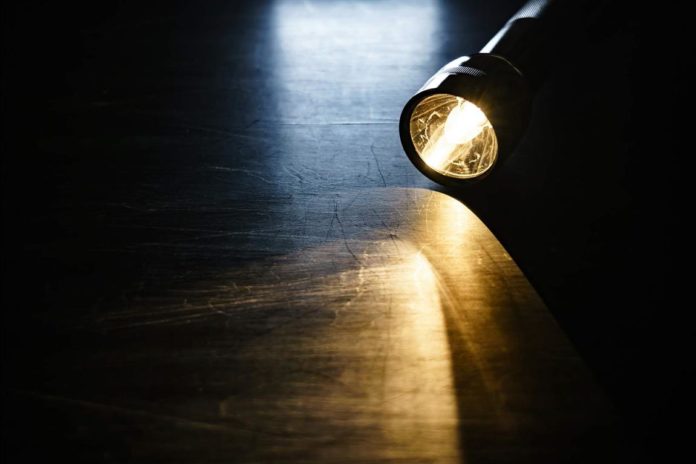With Eskom reintroducing load shedding, South Africans could be facing dark weeks ahead of the festive season. According to Budget Insurance, with collective effort, it’s possible to minimise the frequency and effects of load shedding – all while saving yourself money and looking after the environment.
“Many South Africans are left scratching their heads on how to cope with high energy prices, as well as how to curb load shedding and its effects on their businesses and homes,” says Susan Steward from Budget Insurance. “Fortunately, it’s truly a case of ‘many hands make light work’, in any sense of the word, and each of us can play our part to limit load shedding or even stop it in its tracks.”
A good first port of call is to do a thorough power audit to see how and where you can save electricity:
- Bright idea: switch to energy efficient light bulbs if you have not yet done so already. While they are more expensive than traditional incandescent bulbs, over the longer-term, you will see a difference in savings as the bulbs last longer.
- Smart plugs for smart people: smart plugs are an effective way to help you maintain your power consumption and keep your home energy efficient with little input. Smart plugs can be set to switch off your appliances such as TVs and sound systems entirely as opposed to putting them onto stand-by mode which guzzles power. Smart plugs typically have a companion app allowing you to set preferences, schedules and names for the devices.
- Time for timers: timers, or smart switches, whether for geysers, pool pumps or security lights will help you only consume electricity when these items need to be used. The geyser is one of the most energy consuming items in the household and a smart switch allows this to be turned on or off when necessary.
- Out with the old: letting go of large appliances such as a fridge can seem counter-productive when trying to save money but newer fridges are far more energy efficient than the one which has likely been part of the family for a number of years. Appliances are graded from A to G on their efficiency, with A being the most efficient and G being the least.
- The habit of saving: Get your entire household into the habit of actively turning off any lights and appliances that are not in use and not using any of them for longer than required.
- Long-term planning: there are some bigger ways to reduce a home’s electricity consumption and should be considered as part of a longer term investment and cost saving exercise. This includes putting in solar panels, switching out electricity-run stoves and ovens for gas and replacing air conditioning with ceiling fans and fire places. A pre-paid electricity meter would also be an effective to monitor your home’s power consumption and assist with budgeting for power on a monthly basis.
“The best way to save and conserve power is by ensuring everyone is on the same page about what to do. Do your children, partners and housemates know how much is being spent on electricity every
month? Through a group effort and by making a conscious choice to save electricity, the best results can be achieved,” says Steward.
A second important box to check is to make sure that you are adequately prepared to deal with load shedding. Budget offers these easy to implement tips for those looking to ensure their safety when the lights go out:
- Put the proposed load shedding times somewhere handy so that your family will have enough time to prepare for the power outage.
- Get a few high-wattage solar powered lights for your garden, and a few LED lights for inside. Light is a deterrent to would-be burglars.
- Keep your cell phone charged, or invest in a portable phone charger, so that you can still call for help if you need to.
- If you need to manually open and close your gates when you get home, try to have someone come and meet you at your entrance, or arrange for an escort from your security company.
- Use padlocks, burglar bars and deadbolts to provide an extra level of home security that isn’t power-dependent.
- Alarm systems, garage doors and electric gates generally rely on electricity so make sure that these items all have good back-up batteries.
- Keep a torch or a solar, battery powered light that is charged beforehand in multiple, easily accessible locations around your home. Be sure to also have plenty of spare batteries.
- Your fridge and freezer supplies should be okay without power over night if you do not open and close it repeatedly. If you’re worried about certain food items, prepare an ice-box for these.
- Make sure that all appliances – especially those that pose a fire risk if left unattended – are switched off when load shedding starts and gradually turned back on once power returns. This not only minimises the pressure on the grid when the power is turned back on, but also minimises the risk of damage to appliances due to power surges, or a fire risk causing a power outage to turn into a catastrophe.
There are also less direct, but equally dangerous consequences of load shedding such as street lights and traffic lights being down at night. This places a greater burden on motorists driving home through load-shedded areas in the dark. Motorists are encouraged to drive cautiously at all times, but especially so in these poorly illuminated areas. Treat all inoperative traffic lights as a four-way stop, and when in doubt, yield to oncoming traffic from the right. Do not assume that all other drivers will stop so exercise extreme vigilance and drive defensively.
Steward concludes: “Load shedding is an inconvenience that impacts us all. We owe it to ourselves to proactively reduce consumption and to be thoroughly prepared. This includes having adequate insurance in place, should things go awry when the lights go out.”




